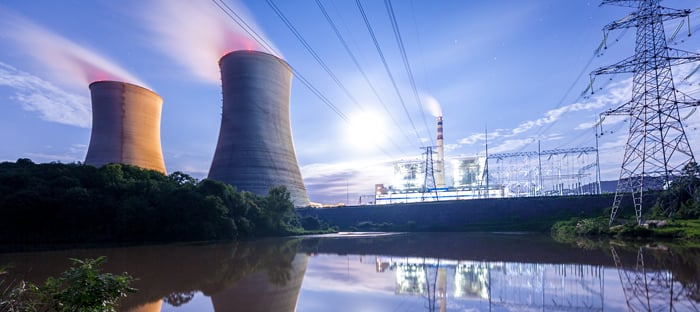Power your home
Enjoy price security with Safe Harbor fixed price energy plans

Power your business

Loading component...
Loading component...
Energy Resources

When comparing energy rates, your first instinct is to find the cheapest one you can, select that rate, and call it a day. Several factors come into play when you are comparing rates and choosing a new supplier, however, and often the best energy plan isn't the cheapest rate.
Take time to learn what those factors are and how they affect your natural gas and electric bill. You may decide you can save more money by choosing a plan that fits your lifestyle.
Before we reveal the necessary steps to find cheap energy plans, it’s important to understand what “cheap power” means, especially to energy veterans.
“Throughout my 40-year career, complaints about the cost of electric service have been a common and central feature of utility regulation and policy,” writes Steve Mitnick, then Editor-in-Chief of Public Utilities Fortnightly, in an opinion piece titled What Cheap Electricity Means . “Utility regulation and policy has been an enormous success in making electric service cheap for consumers. ... Cheap electricity translates into more money for the kid's education, the parent's senior care, or just that occasional Lady Gaga concert.”
Inexpensive electric service, he writes, encourages manufacturers to innovate, since they know consumers can afford to power whatever they produce. Cheap electricity also provides the foundation for a technological future, one populated with robots, virtual reality, autonomous vehicles and more. “No way this happens if electric service isn't cheap (as well as ubiquitous and reliable),” Mitnick writes.
“No way this happens if electric service isn't cheap (as well as ubiquitous and reliable),” Mitnick writes.
The takeaway? All energy rates are “cheap” to begin with. The real treasure you’re searching for is the best plan at the best rate that fits your individual needs
The simple truth is all energy companies can offer the cheapest rates at one time or another. Natural gas and electricity The suppliers search the energy market to purchase wholesale from generation companies, and the purchase price for those resources can fluctuate based on everything from consumer demand to signing a better procurement deal than the competition.
Thankfully, as an Energy Choice consumer, you can compare rates at any time to determine who is offering the best rate for your individual or family need.
Enter your zipcode to find 100% Green plans in your area.
Before you visit different suppliers to compare gas and electricity rates, here are six steps to take to make sure you’re properly shopping.
First, it’s important to know that Energy Choice works a little differently in each state. In some states, for example, after switching electricity suppliers, your utility will continue to send your electricity bill, while in other states, consumers may receive their energy bill directly from their supplier. Your local or state government should provide information online about how Energy Choice works where you live. For example, Ohio’s online information website is titled Apples to Apples.
Before you shop, make sure you know your current plan and its cost. If the type – fixed rate or variable rate – is not apparent, check your latest bill to see how much you are paying per kilowatt hour (kWh). This is the unit used to measure energy consumption. It’s also worth reaching out to your supplier to see if you are under contract and for how long. If you're in the middle of a fixed rate contract, you may have to wait a couple of months to shop.
You may also want to better understand your own energy consumption habits. Do you run the dishwasher and washing machine at the same time? Are you always leaving the lights on? If you have the discipline to change your energy consumption habits – you could potentially have a lower energy bill on a higher rate than selecting the cheapest rate available. Or turn a new fixed-rate plan into the cheapest rate around. One of the best ways to do so is to conduct an energy audit. And you can do it on your own.
Knowing which gas and electricity suppliers operate in your state or region will help you narrow your search for the best rate. Energy Harbor, for example, supplies electricity and natural gas to residents and businesses in Ohio, Pennsylvania, Illinois, New Jersey and Maryland.
When comparing gas and electricity plans, you will encounter low prices for variable rates. Before you choose a variable rate contract, however, understand that because it is variable, the rate will likely fluctuate up and down based on market movement. With a fixed rate, you lock in a great price over an extended period and do not have to worry about market fluctuations.
Contract length for energy plans typically spans from 12 months to 36 months. The longer the contract, the better the energy rate, usually. Some people like shorter contracts because they prefer to regularly shop for new rates sooner rather than later. Others choose the longer term to lock in a low rate – set it and forget it – for an extended period.
Choosing an affordable and competitive fixed-rate energy plan will help you build a better home budget, but that doesn’t mean your bill won’t shift a bit, month to month. This fluctuation is usually due to utility company charges, including taxes. Rather than be surprised by these minor changes, understand what they are and how they might affect your bill. They include:
One final note. Picking a competitive energy supplier like Energy Harbor has no impact on the reliability of your electricity supply. Your local utility still delivers your electricity. Simply remember that you’re only choosing the rate of your energy supply and the length of service. If you experience outages of any kind, you still need to contact your utility to resolve the issue. Contact your utility to find a solution.
Energy Harbor offers safe, clean, and reliable power through fixed-rate plans, long-term price protection, and, in many cases, lower supply rates when compared to your local utility. Explore your options and choose the plan that's right for you.
Enter your zipcode to find 100% Green plans in your area.